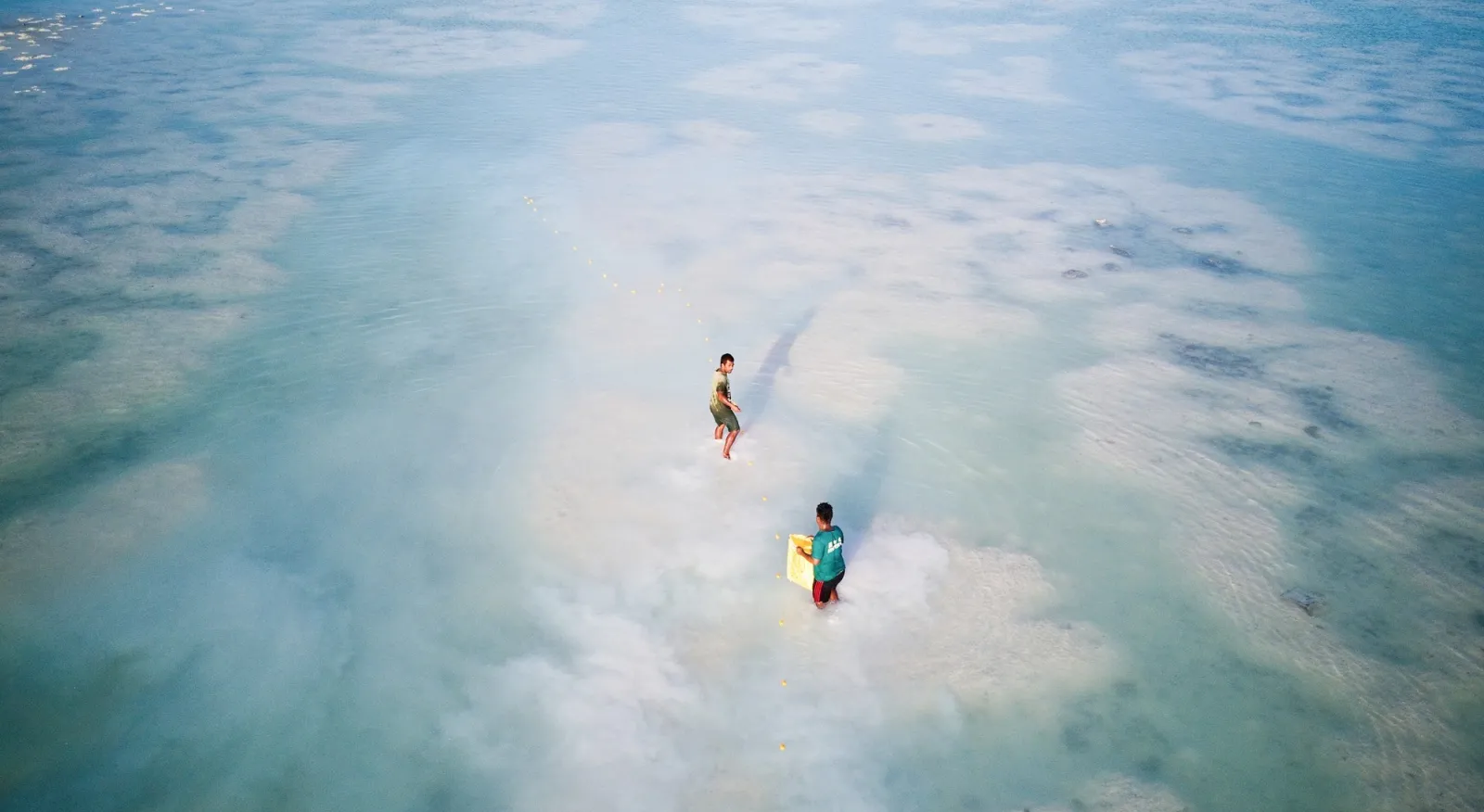Building business resilience to climate change in Kiribati
How an Australian volunteer supported businesses with better access to funding and support, helping them thrive in the face of climate change.

In Kiribati, climate change impacts almost all aspects of life.
The 110,000 people who call the Pacific island nation home are already experiencing increased temperatures, changes to annual rainfall, and rising sea levels.
As the impacts of climate change become more frequent and intense, they have an effect right across the community — from government and civil society organisations, to small local businesses, which form a large part of commerce in Kiribati.
Income from these businesses supports community livelihoods, which is particularly important in times of disaster. The private sector can play a critical role alongside government in disaster response, and the income and savings from businesses can help families and communities survive and thrive through times of crisis.
The Kiribati Ministry of Commerce, Industry and Cooperatives (MCIC) supports private sector development across the nation, nurturing a business environment that supports investment, trade, and industrial development. The ministry aims to become a leading agent of change in fostering sustainable socioeconomic growth, through a vibrant private sector and effective business regulation.
‘Climate change and business development is a complex topic,’ says Ierevita Biriti, OIC Business Promotion Centre.
'We want our businesses to know how to adapt to change in times of emergency or how best to deal with impacts of climate change, so the business owner should know how to be resilient to these changes.'
The MCIC identified that they needed to enhance their capacity to train small business owners on the core elements of running a business, and in-turn improve their resilience to shocks – whether they be commercial or environmental.
Australian volunteer Les Massey joined the MCIC as an industry development advisor, and helped the team deliver improved training and services to businesses across Kiribati, with a particular focus on those in the nation’s outer islands.
‘Les Massey was a trainer and mentor on how best to deliver programs to the business community,’ says Ierevita.
Les worked with MCIC staff to help them better deliver financial training and business support services. Across the wider ministry, he helped the team develop key resources, including a financial planning toolkit which was targeted to entrepreneurs on Kiribati’s outer islands, and supported the development of better business planning processes.
In addition to business development support, Les provided technical advice on financial planning and product costing to businesses and government agencies working in aquaculture, food security, agriculture sustainability, and green business.
Through networking and stakeholder engagement, Les helped grow the profile of the MCIC’s Business Promotion Centre among peak government and commercial agencies.
As a product of Les' support, the MCIC was able to help businesses better access funding and financial support services, improving their overall ability to operate.
‘(Les's) assistance has enhanced the capacity of the business community to access funds and enables our trainers to increase outreach programs because they can use the resource materials easily,’ says Ierevita.
These contributions will have a lasting impact in helping build the resilience of the local business community, and in turn a more sustainable private sector development in Kiribati.
Acknowledging the rapidly changing and increasingly complex global humanitarian environment, the Australian Volunteers Program has committed to increasing volunteer placements in climate change, disaster resilience and food security
To support the development of new partnerships and to document outcomes in this area, the Australian Volunteers Program commissioned CoLab, a Fiji-based development consultancy, to develop a Pacific Climate Research report. This case study was developed as part of this report.